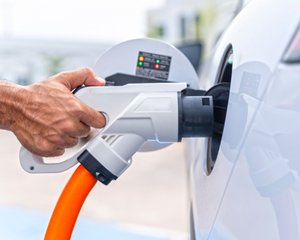A growing number of Americans don't want to buy an electric vehicle, and the percentage of respondents skeptical about the performance of EVs rose from 17.8 percent to 21 percent between January and March
越来越多的美国人不想购买电动汽车,此外,在今年1月至3月期间,对电动汽车性能持怀疑态度的受访者比例从17.8%上升到了21%,
according to a recent study by JD Power, a US market research and consulting firm.
这是根据美国市场研究和咨询公司君迪最近发布的一项研究得出的。
The percentage of those who are "very likely" to choose an EV has remained essentially unchanged this year, at about 26.9 percent.
而今年“很可能”选择电动汽车的人的比例基本保持不变,约为26.9%。
According to Business Insider, while interest in EVs has grown over the past few years, with market share rising from 2.6 percent in February 2020 to 8.5 percent in February 2023,
据《商业内幕》报道,尽管过去几年人们对电动汽车的兴趣有所增长,电动汽车的市场份额从2020年2月的2.6%上升到了2023年2月的8.5%,

there are still a lot of issues preventing EV purchases, and many aren't ready to give up on gas-powered vehicles yet.
但目前仍有很多问题阻碍人们购买电动汽车,并且很多人还没有做好准备放弃燃油车。
High prices and a lack of charging stations are the top deterrents for consumers, followed by range and charging time restrictions.
高昂的价格和缺乏充电站是阻碍消费者购买电动汽车的最主要原因,其次是续航里程和充电时间限制。
Issues such as EV performance in extreme temperatures and a lack of repair shops are also factors.
此外,电动汽车在极端温度下的性能和缺乏维修店等问题也是影响因素。
Contrary to conventional wisdom, it's not just seniors who won't consider buying an EV.
与传统观点相反,不考虑购买电动汽车的不仅仅是老年人。
According to JD Power, 33 percent of Gen-Z (born between 1995 and 2009) consumers also say they are "somewhat" or "very" unlikely to buy an EV.
据君迪公司透露,还有33%的“Z世代”(1995年至2009年期间出生的人)消费者也“不太可能”或“非常不可能”购买电动汽车。













